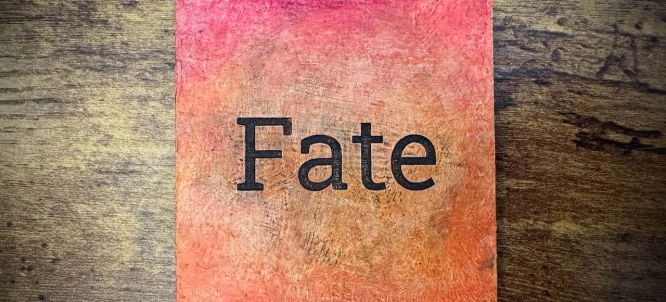by PushtoLearn
Fate vs Destiny
Table of Contents
Fate vs Destiny - Exercise
This exercise focuses on Fate vs Destiny
Theory and Rules
Fate
"Fate" refers to a predetermined course of events that are beyond a person's control. It is often seen as something that is inevitable and unavoidable, dictated by a supernatural power.
Examples:
It was fate that they met that day.
No one can escape their fate.
Destiny
"Destiny" also refers to a predetermined course of events, but it often has a more positive connotation. It suggests a future that is meant to be achieved or fulfilled, often involving a sense of purpose or mission.
Examples:
She believes it is her destiny to become a doctor.
Their destiny was to create something great together.

Everyday Use
Fate in Daily Life
"Fate" is commonly used when talking about events that seem out of our control, often with a sense of resignation or acceptance.
Example:
Meeting him felt like fate; it was as if it was meant to happen.
Destiny in Daily Life
"Destiny" is often used when discussing one's future path or calling, with a focus on achieving something significant or fulfilling one's potential.
Example:
She feels that her destiny is to help others through her work.
Common Errors
Using "fate" When "Destiny" is More Appropriate: Using "fate" in contexts where "destiny" would be more fitting due to its positive connotation and sense of purpose.
Incorrect: He worked hard to fulfill his fate.
Correct: He worked hard to fulfill his destiny.
Using "destiny" When Referring to Unavoidable Events: Using "destiny" in contexts where the event is simply unavoidable and not necessarily positive or purposeful.
Incorrect: It was her destiny to get caught in the rain.
Correct: It was her fate to get caught in the rain.
FAQ
Can "fate" and "destiny" be used interchangeably?
Not exactly. "Fate" often implies inevitability and a lack of control, while "destiny" suggests a positive future with a sense of purpose.
How do I remember the difference between "fate" and "destiny"?
Think of "fate" as unavoidable and often neutral or negative, while "destiny" is purposeful and positive.
Can destiny change, or is it fixed like fate?
While both imply a predetermined course, "destiny" often carries the idea that actions and choices can help fulfill it.
Is "fate" always negative?
No, "fate" is not always negative, but it often has a neutral or resigned connotation compared to the typically positive "destiny."
How are "fate" and "destiny" used in literature?
In literature, "fate" is often used to highlight unavoidable events, while "destiny" is used to emphasize a character's purpose or mission.

